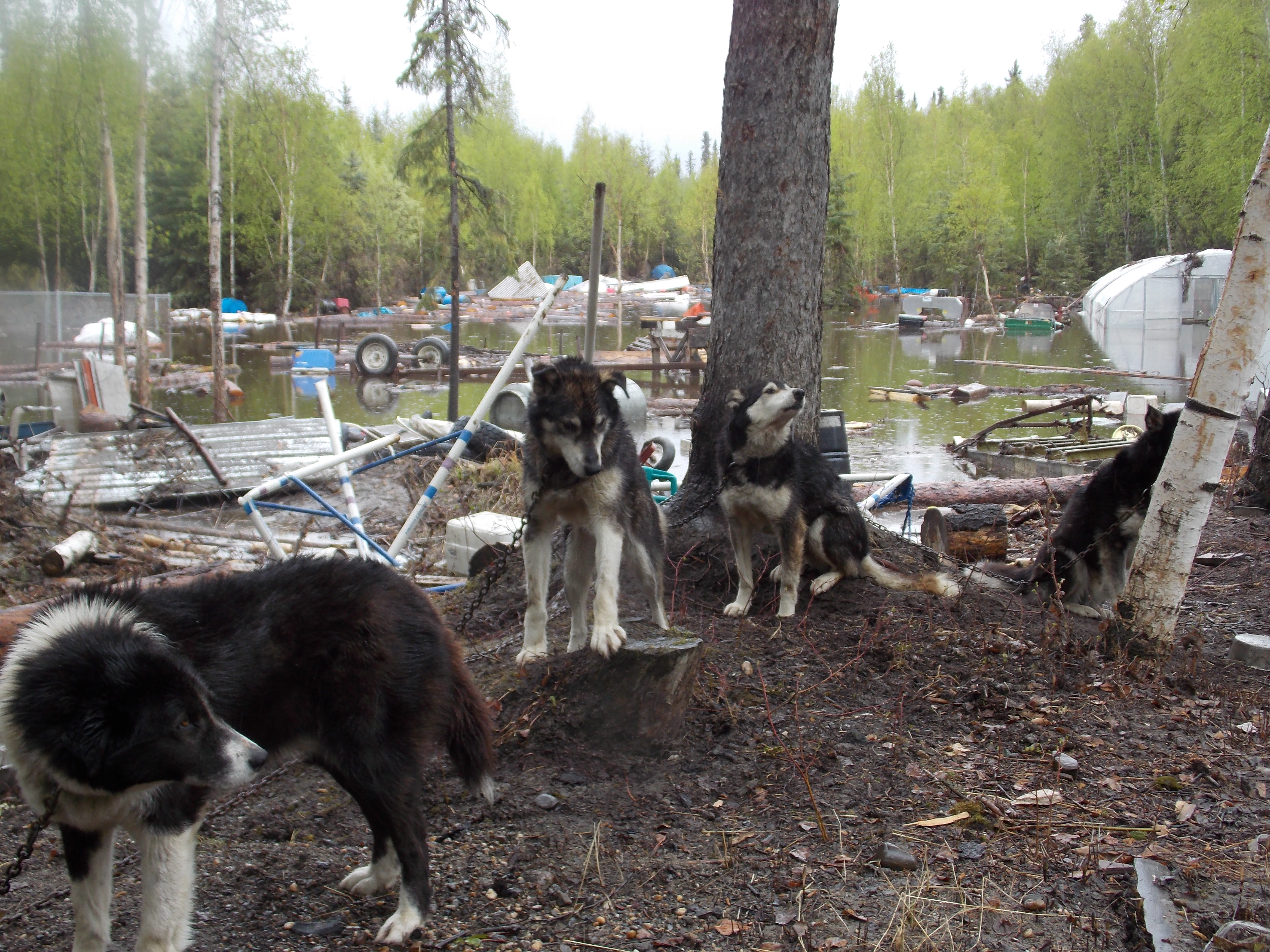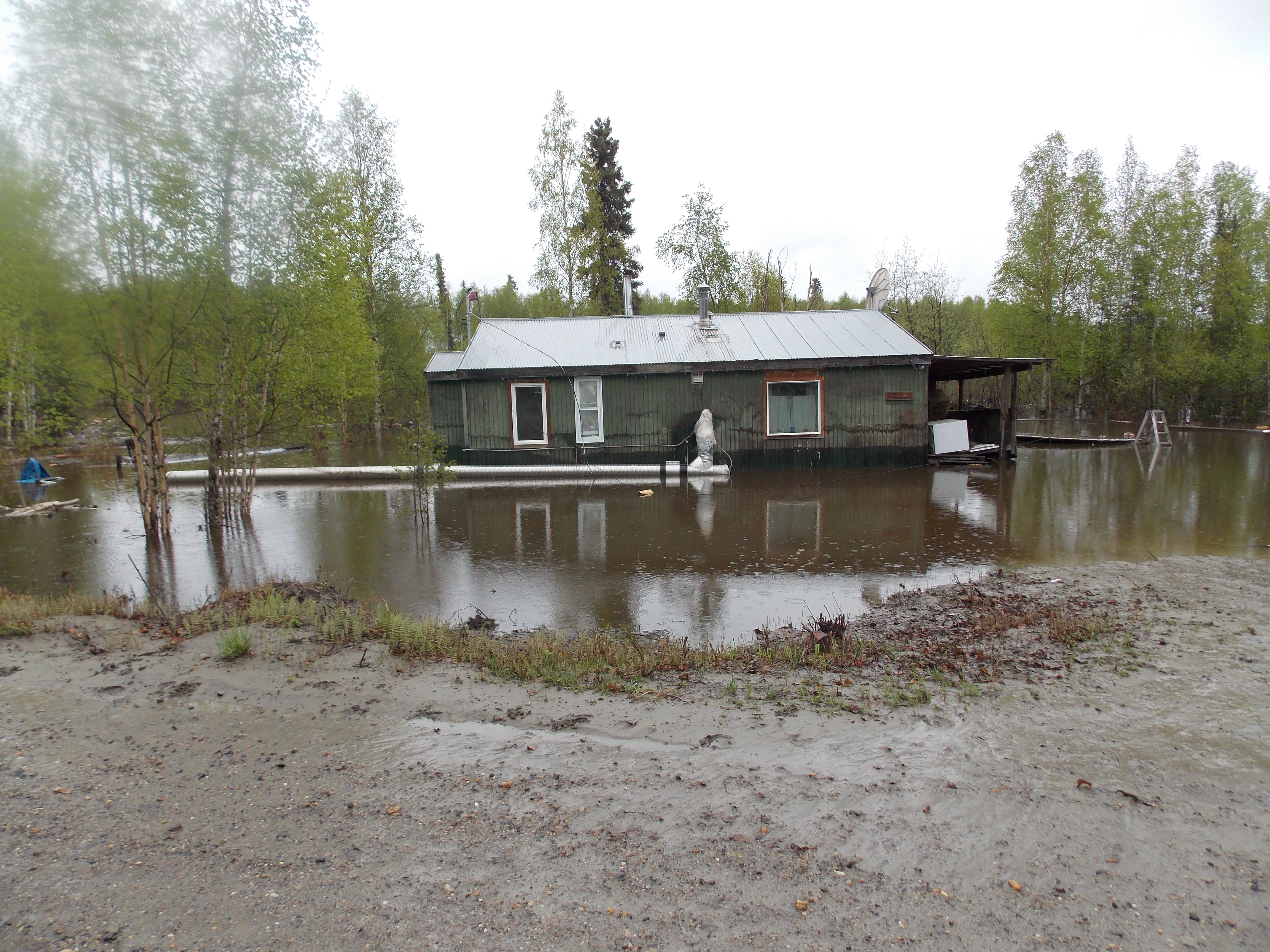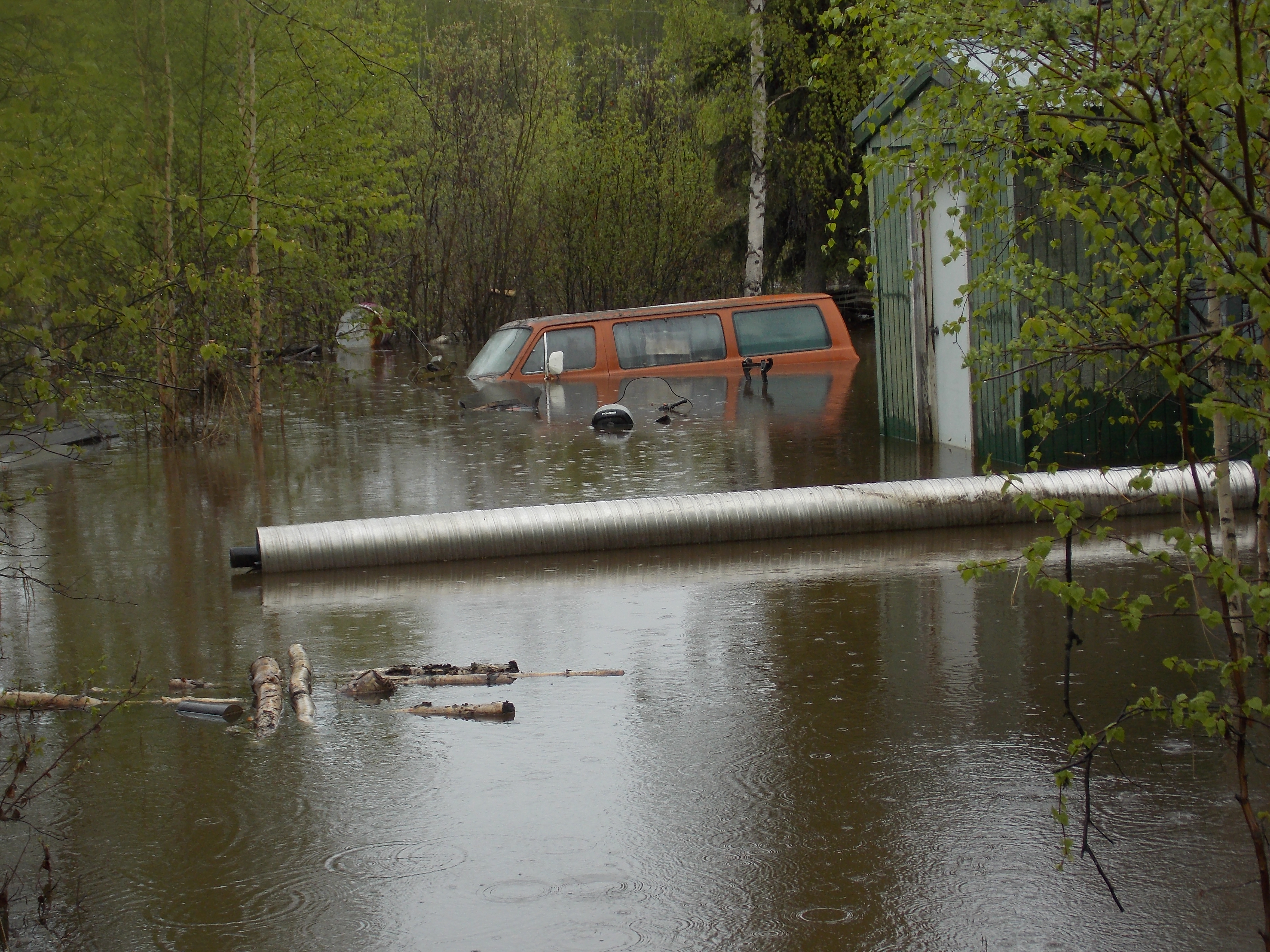
Work continues to restore basic infrastructure in Galena, after an ice jam on the Yukon River severely flooded the village last week.
About 100 people are staying at the Galena boarding school, located inside a diked area that was not flooded. The dorm and dining hall are serving as shelter for locals whose homes were damaged, and emergency responders: a mix of government, tribal and Red Cross personnel.
City manager Greg Moyer has a short list of priorities for the week including restoring city power, water and roads, and disposal of garbage.
“We are cut off from our landfill and we have rotting meat and stuff, it’s a shame, people’s freezers. We have just normal waste that we’re developing here, just with responders and getting that somewhere. Having a secondary landfill, or if we have to boat up garbage to our landfill, if we have to fly it up and sling it, we’re gonna have to do that.”
Moyer says other priorities for the week include a contamination assessment, restoring phone and Internet service community wide, re-opening the post office, and getting the local public radio station back on the air.
He says a lot of pieces need to come together before the majority of the village’s 400 residents, who evacuated, can return from Fairbanks, Anchorage and neighboring villages:
“People that wanna check on their homes, which they don’t know now unless they’re learning from friends that they have anything to come home to – what do you do then? Housing, it’s just critical for those that just didn’t lose their house off the foundation, they need sheetrock, they need those kind of supplies. Well how do they get them in here?”

Moyer says a transition is happening now as locals move beyond surviving the disaster, to what’s next, whether and how they will rebuild their lives in Galena.
“Trying to think where their future is gonna lie now and their jobs and their homes and just their whole livelihood,” Moyer said.
Moyer welcomes volunteer organizations coming in to help when basic infrastructure can support more people. The community also needs money. The state has already declared a disaster, activating access to grant and loan programs.
Assessment teams will be in the town this week to gather information needed to apply for a federal disaster declaration, allowing the Federal Emergency Management Agency to offer aid.
KUAC’s Dan Bross toured the community Tuesday to see how residents are coping.
Iditarod veteran John Korta’s dogs bark a sad hello as we walk into his still flooded yard.
“That’s my dog yard, on the gravel pad there. I don’t think this is gonna dry out anytime soon,” Korta said.
It’s raining making the silt covering everything slick and sloppy. Korta was one of about 70 locals who remained behind during the flood.
“It was so surreal, so we’re just, like, sweating it out, living in the boat for a couple days with 12 dogs. It’s chaos.”
With the emotion of the flood wearing off, Korta and others are left trying to salvage submerged trucks and 4 wheelers, while tearing into their water logged homes before mold can grow.
“I had to pull the hardwood yesterday, that was sad. But it’s just stuff, everyone lived, it’s good, we’ll be alright,” Korta said.
Some houses are off foundations, thrown askew in mud or flood ponds. There’s evidence everywhere of the Yukon’s water and ice bulldozing through the village.

Local teacher Paul Apflebeck and Korta mix sadness and humor while driving around Galena. looking at the result of what many refer to as the community’s worst ever flood. The roads are pretty quiet, but every few blocks there’s somebody at work, the whir of a generator humming.
Driving down his street for the first time since evacuating with his wife, Apfelbeck is greeted by neighbors.
The flood soaked most homes, dumped over fuel tanks, and floated away firewood. Galena 2nd chief Jenny Polkola is one of the few women who stayed in town through the flood, working to ensure others got out, and says she continues to support those worse off.
The disaster has hit Galena during a spring that’s started far too late for what needs to get done to recover. Paul Apfelbeck likens the experience to grieving.
“I was telling my wife that in a disaster you usually go through a predictable sequence. Which first you have your kumbaya moment in which everyone hugs each other and mentions the lord, followed by the recrimination moment where we’re supposed to rebuild our town, then jealousy and anger, which is ‘why are they getting that and I’m getting nothing,’ then followed by acceptance. And I think we’re a little past the kumbaya moment,” Apfelback said.
Like everybody in Galena, Apfelbeck says he’ll be foregoing normal summer activities; his boat grounded in the middle of the road, and greenhouse submerged. John Korta is balancing salvage of his logging and bed and breakfast businesses, with fixing up his home.
“Rebuild, I don’t know. Waiting to see what loan packages are available and see I might be out of business for awhile, but try to get the house up and running first, “ Korta said.
His dog yard still under several feet of standing water, Korta says his huskies will spend the summer at a friends’ kennel in Fairbanks.
